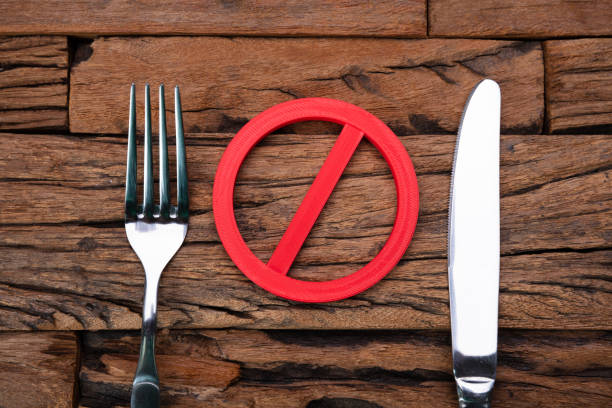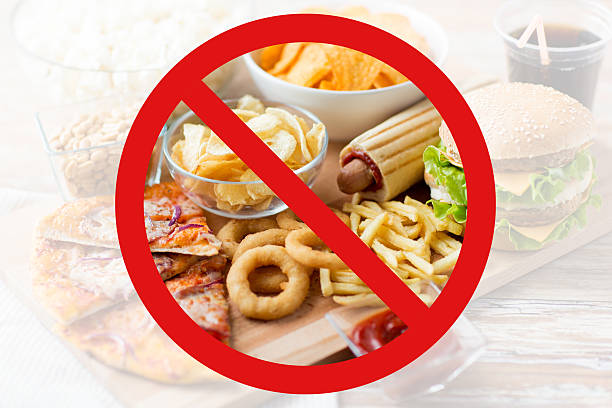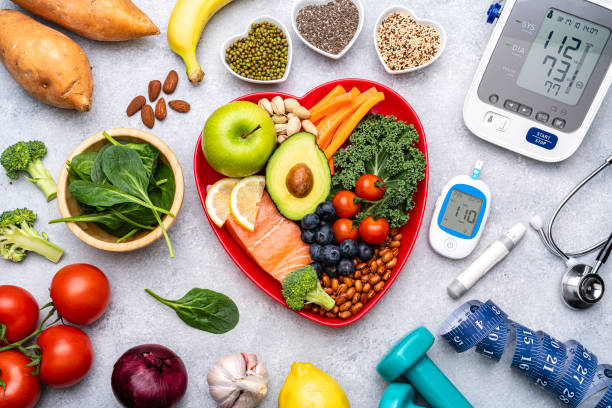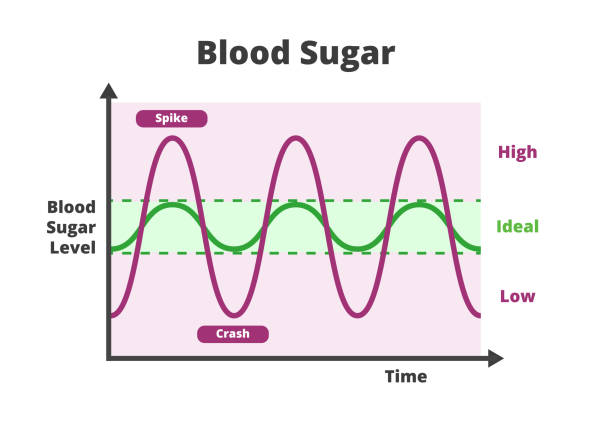What Is a Blood Sugar Spike?
A blood sugar spike is a sudden increase in glucose (sugar) levels in your bloodstream, usually after eating. This is especially common after meals high in sugar or simple carbohydrates.
Your body uses glucose as fuel. But when too much floods your bloodstream too quickly, your pancreas scrambles to produce insulin—the hormone that helps move glucose into your cells. If this system gets overwhelmed, it can lead to a series of problems over time.
While some rise in blood sugar after eating is normal, frequent spikes are a red flag. They can make you feel tired, hungry, and irritable—and in the long run, they increase your risk of insulin resistance, type 2 diabetes, heart disease, and even obesity.
Why Do Blood Sugar Spikes Happen?
Let’s take a closer look at the main causes of blood sugar spikes. These triggers are often part of your daily routine, and understanding them can make a big difference. By learning what leads to a spike, you can make smarter choices with your meals, snacks, and lifestyle.
1. Eating High-Glycemic Foods
High-glycemic index (GI) foods cause your blood sugar to rise quickly. These include:
- White bread
- White rice
- Potatoes
- Sugary breakfast cereals
- Candy and soda
These foods digest fast, leading to a sudden sugar rush.

2. Skipping Meals, Then Overeating
If you skip a meal, your hunger builds up. Later, you may eat too much in one sitting. This can flood your body with glucose all at once, which raises the chance of a blood sugar spike.
3. Drinking Sugar-Sweetened Beverages
One of the biggest causes of blood sugar spikes? Sugary drinks. These include soda, sweetened iced tea, energy drinks, and even some fruit juices. Just one serving can pack over 30 grams of sugar. Since liquid sugar gets absorbed quickly, it hits your bloodstream faster than solid food. This rapid rush of glucose can cause a sharp and sudden blood sugar spike.
4. Eating Without Enough Fiber, Protein, or Fat
Meals that are mostly made of carbs—and little else—are digested fast. This causes your body to absorb glucose quickly, which can lead to a spike in blood sugar. But when you add fiber, protein, or healthy fat to your meal, digestion slows down. This helps control how fast sugar enters your bloodstream and keeps your levels more steady.
5. Stress and Hormonal Changes
Stress triggers your body to release a hormone called cortisol. Cortisol tells your liver to send more glucose into your blood. This is your body’s way of getting ready for a “fight or flight” response. But when stress happens often, that extra sugar doesn’t get used up. Instead, it builds up in your bloodstream and raises your blood sugar levels.
6. Poor Sleep Quality
Lack of sleep doesn’t just leave you feeling tired—it also affects how your body handles sugar. When you don’t get enough rest, your body becomes more resistant to insulin. This means glucose can’t enter your cells as easily, so it stays in your blood longer. As a result, your risk of blood sugar spikes after meals goes up.
7. Not Getting Enough Exercise
Your muscles play a key role in soaking up glucose from your bloodstream. But when you’re inactive, this process slows down. Without regular movement, your body becomes less sensitive to insulin. That makes it harder for glucose to enter your cells. Exercise helps fix this by boosting insulin sensitivity. This means your body can handle sugar better after you eat, lowering the risk of blood sugar spikes.
What Happens in Your Body During a Blood Sugar Spike?
Here’s a simple look at what happens:
- You eat a meal, especially one high in sugar or carbs.
- Glucose enters your bloodstream.
- Your pancreas releases insulin to help cells absorb the glucose.
- If there’s too much glucose, your body can’t absorb it all fast enough.
- Your blood sugar rises quickly (the spike), then often crashes later.
That crash can leave you feeling:
- Sleepy
- Hungry
- Irritable
- Craving more sugar
This cycle is hard to break but completely manageable with the right habits.
Signs You’re Having Blood Sugar Spikes
Many people don’t realize they’re having blood sugar spikes. Watch out for these common signs:
- Feeling very tired after eating
- Sudden cravings, especially for sugar or carbs
- Mood swings or anxiety
- Headaches or dizziness
- Brain fog or trouble concentrating
- Dry mouth or increased thirst
- Needing to pee more often
If these symptoms happen often—especially after meals—it’s worth making a few changes and talking with your doctor.
How to Prevent Blood Sugar Spikes Naturally
Preventing blood sugar spikes doesn’t mean giving up all the foods you love. It means creating balanced habits that help your body handle sugar better.
Here’s how to do it:
1. Build Balanced Meals
A balanced plate is your best defense. Each meal should have:
- Protein (like eggs, chicken, fish, or tofu)
- Healthy fat (like avocado, olive oil, nuts, or seeds)
- Fiber-rich foods (like vegetables, beans, or whole grains)
- Complex carbs (like sweet potatoes or quinoa)
This combination slows digestion, so your blood sugar rises more gently.
Example Balanced Meal:
Grilled salmon + roasted veggies + ½ cup brown rice + olive oil drizzle

2. Avoid Ultra-Processed Carbs
Try to limit or avoid foods like:
- White bread
- Instant noodles
- Sugary snacks
- White rice
- Soda and sweet teas
Instead, go for whole or minimally processed options. Think:
- Rolled oats instead of sweet cereal
- Brown rice instead of white
- Whole fruit instead of juice
Whole foods come packed with fiber, which slows sugar release into the bloodstream.
3. Go for a Walk After Eating
Light movement after meals can work wonders for your blood sugar. A simple 10–20 minute walk can:
- Reduce the size of blood sugar spikes
- Improve insulin sensitivity
- Aid digestion
- Boost energy
Even just standing and stretching is better than sitting still.
4. Control Your Portions
Eating large portions—even of healthy food—can still cause spikes. To help avoid overeating:
- Use smaller plates
- Eat slowly and mindfully
- Wait 10 minutes before getting seconds
Tip: Try the “plate method”—fill half your plate with non-starchy veggies, one-quarter with lean protein, and one-quarter with whole grains or starchy vegetables.
5. Manage Stress
Lowering stress can help lower blood sugar. Try:
- Deep breathing
- Meditation or prayer
- Journaling
- Nature walks
- Listening to calming music
These small habits reduce cortisol, which helps stabilize blood sugar levels.
6. Prioritize Sleep
Getting 7–9 hours of good sleep helps your body manage sugar better. To improve your sleep:
- Stick to a bedtime routine
- Avoid caffeine after 2 p.m.
- Keep your room cool and dark
- Limit screen time before bed
Good sleep isn’t just about rest—it’s also about blood sugar control.
7. Add Helpful Natural Aids
Some studies show that apple cider vinegar and cinnamon can help reduce post-meal spikes. Here’s how to use them:
- Mix 1–2 teaspoons of apple cider vinegar in water before meals
- Add cinnamon to your oatmeal or coffee
These ingredients won’t cure high blood sugar—but they can support better regulation.
Always talk to your doctor first if you’re taking medications.

Best Foods for Steady Blood Sugar
Want to build meals that support balanced blood sugar? Start with these:
Non-Starchy Vegetables
- Spinach
- Kale
- Broccoli
- Zucchini
- Bell peppers
Lean Proteins
- Eggs
- Chicken breast
- Salmon
- Tofu
- Lentils
Healthy Fats
- Avocados
- Nuts and seeds
- Nut butters (no added sugar)
- Extra virgin olive oil
Low-Glycemic Fruits
- Berries
- Apples
- Oranges
- Peaches
- Kiwi
Whole Grains
- Steel-cut oats
- Quinoa
- Farro
- Barley
When to See a Doctor
If you experience symptoms of blood sugar spikes regularly—or if you have a family history of diabetes—talk to your healthcare provider.
They may suggest tests such as:
- Fasting Blood Glucose Test
- Hemoglobin A1C (shows your average blood sugar over 3 months)
- Glucose Tolerance Test
Early detection can help prevent serious conditions like prediabetes or type 2 diabetes.
FAQs About Blood Sugar Spikes
Are blood sugar spikes dangerous even if I’m not diabetic?
Yes. Even if you’re not diabetic, frequent spikes can lead to insulin resistance, a warning sign of future problems.
Can healthy people have blood sugar issues?
Absolutely. You don’t need to be overweight or diabetic to experience spikes. It’s about what and how you eat.
Are all carbs bad?
No! Your body needs carbs for energy. The key is choosing complex carbs with fiber, like brown rice, oats, and veggies.
Is fruit okay for blood sugar?
Yes—whole fruits are fine in moderation. Just avoid juices and dried fruits with added sugar.
Final Thoughts: Small Changes, Big Impact
You don’t need a perfect diet to avoid blood sugar spikes. You just need a few steady habits.
Here’s a quick recap to get you started:
✅ Eat balanced meals with protein, fiber, and fat
✅ Choose whole, minimally processed foods
✅ Move your body after meals
✅ Keep stress and sleep in check
✅ Watch your portions and eat mindfully
Your energy, focus, and long-term health depend on it.
Let’s Keep the Conversation Going!
Have you experienced blood sugar spikes before? What has worked for you? Leave a comment and share your experience!
And if you found this post helpful, share it with a friend or loved one who could benefit too.
Your body is always talking—let’s start listening.

